Digestive System
All information about "Digestive System" and the related magazine articles can be found here.
Our articles are written clearly and link to scientific studies where relevant. This is how we meet our own standards: we regularly deliver new, high-quality content for you—free of charge, no sign-up required, with the highest possible benefit to you.
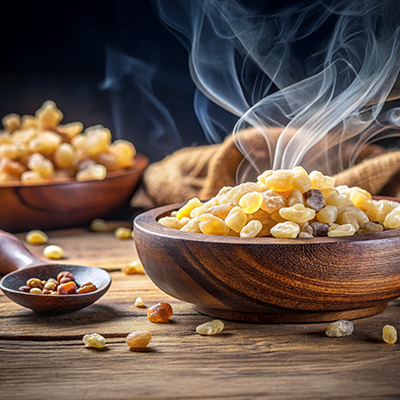
Frankincense: the versatile resin of nature
Discover the history, applications and valuable ingredients of this traditional natural wonder.
Frankincense has inspired people for thousands of years with its fragrance and versatile applications. Whether in ceremonies or as a potential remedy - find out what makes this special resin so unique.

Hashimoto's thyroiditis: Understand, recognize, treat
Find out all about the causes, symptoms and possible treatment approaches for the most common thyroid disease.
Hashimoto's thyroiditis is the most common autoimmune disease of the thyroid gland. Find out how the disease develops, what symptoms can occur and what treatment options are available.
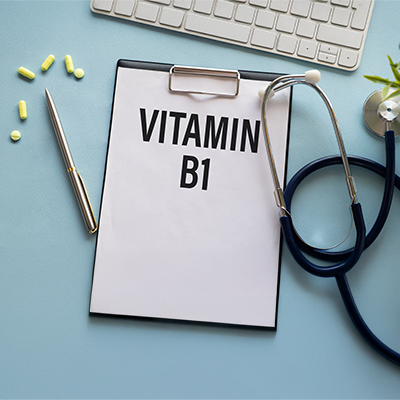
Beriberi: the underestimated consequence of a vitamin B1 deficiency
Find out how beriberi disease manifests itself, what causes it and how you can prevent a thiamine deficiency.
Beriberi is caused by a lack of vitamin B1 (thiamine) and can have serious consequences for the body. Read about the symptoms, how the disease is treated and how you can prevent it.
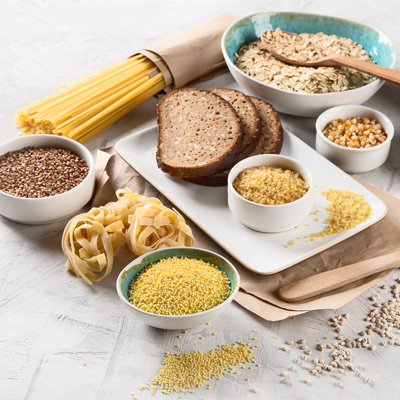
Polysaccharides: The invisible powerhouses for your diet
Find out how these complex carbohydrates support your health and what benefits they can offer the body.
Polysaccharides are complex carbohydrates that are found in many foods. Discover what role these polysaccharides play in our diet and what functions they fulfill in the body.
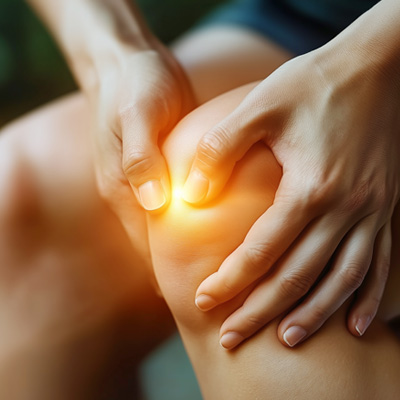
Glucosamine: a natural building block for your joints
Find out how glucosamine can help maintain joint structure.
Glucosamine is a natural component of our body and plays a central role in joint health. In this article, you will learn how it can support your joints and what you should keep in mind when taking it.
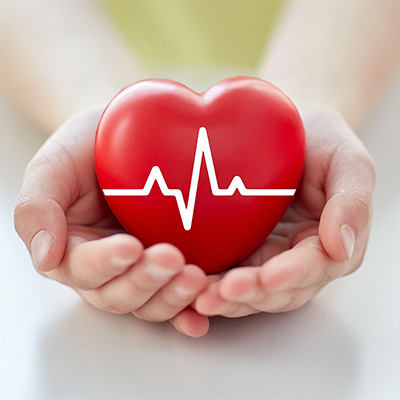
The cardiovascular system: your engine for health and energy
Discover how your cardiovascular system ensures that nutrients and oxygen reach every cell every day – and why it is so important to keep it healthy.
The cardiovascular system is our body's vital transportation system. It delivers oxygen and nutrients to every cell, keeping us moving every day. Learn how it works and why keeping it healthy is so important.

Micronutrients: small building blocks – big impact on your health
Find out how essential micronutrients can support your body and why they are indispensable, especially in times of stress and an unbalanced diet.
In today's hectic world, a balanced diet and vital substances often take a back seat. However, micronutrients – such as vitamins, minerals and trace elements – are essential for your health. Find out how these little helpers have a big impact and why they are indispensable in your everyday life.
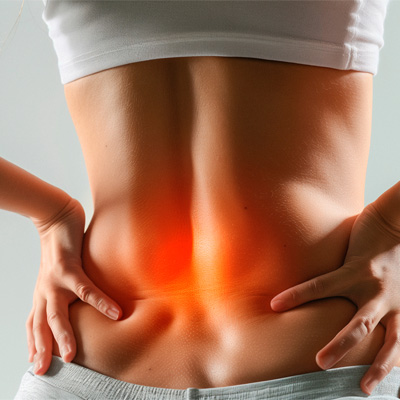
Inflammation in the body: a protective mechanism with risks
Find out how inflammation protects the body and when it can become a health risk. Discover tips for helping your body to deal with inflammation.
Inflammation is the body's natural response to harmful influences. It protects us, but it can also become chronic and pose a health risk. Learn more about the balance between protection and risk and how you can help your body stay healthy.
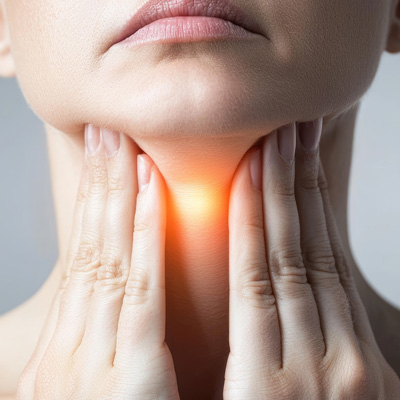
Hyperthyroidism: When the body gets out of balance
Discover the signs of an overactive thyroid and learn how it can affect physical and emotional balance.
An overactive thyroid can throw many bodily processes out of whack, causing everything from constant restlessness to severe mood swings. Learn how to recognize the signs of an overactive thyroid and the steps you can take to get it under control.
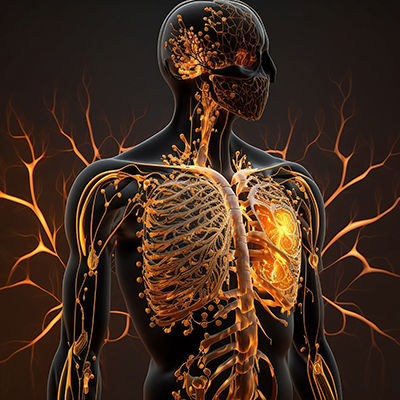
Mysterious autoimmune disorders
When the immune system gets out of control.
Find out what happens when the immune system suddenly attacks the body's own cells, what diseases there are and what symptoms you should take seriously in order to be able to act early.
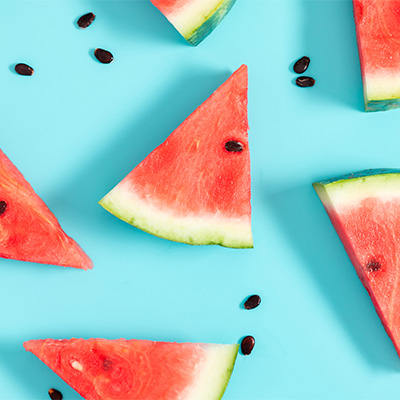
Citrulline – the natural energy booster
Find out how citrulline can help support your performance and endurance in everyday life.
Citrulline can support your energy and endurance, promote recovery and improve blood flow. Discover how this amino acid derivative can help you in your daily life.
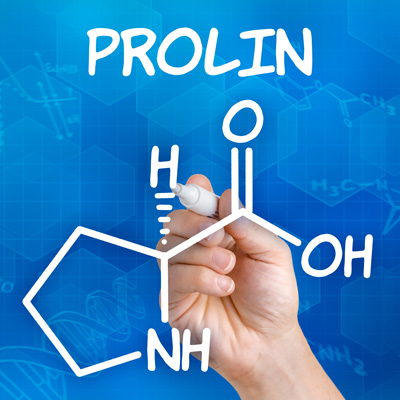
Proline: the building block for healthy joints
Discover the benefits of proline for your joints, skin and connective tissue.
Proline is an amino acid that plays an important role in healthy joints, skin and connective tissue. Find out how proline can help strengthen your joints and keep your skin elastic. Immerse yourself in the world of amino acids and their benefits for your health!

Fibromyalgia: living with chronic pain
Understand, relieve and live better - your source of knowledge and support for fibromyalgia.
Fibromyalgia affects millions of people worldwide and causes chronic pain, fatigue and sleep disorders. Find out what treatment options are available to alleviate symptoms and improve quality of life. Discover tips and strategies for a better well-being.
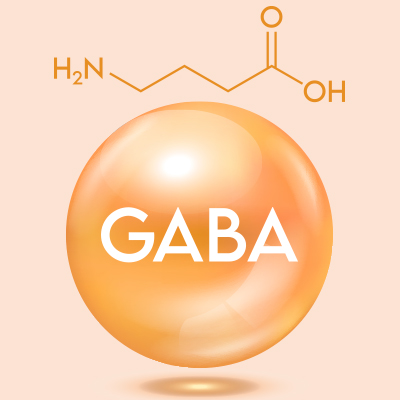
Say goodbye to stress - hello GABA!
Do you often feel stressed and overworked? GABA, a natural neurotransmitter, could be the solution. Find out how GABA helps your body to reduce stress, calm your nerves and promote a feeling of deep relaxation.
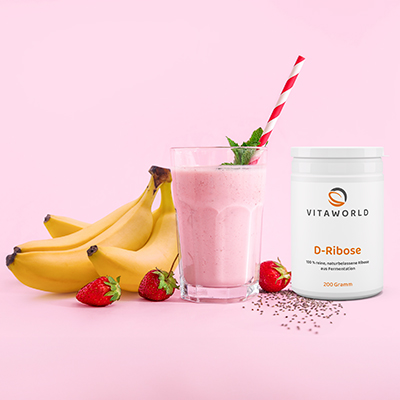
D-Ribose Power-Smoothie
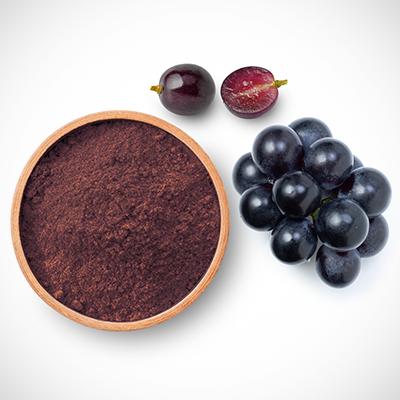
OPC - antioxidants for better health!
Why OPC can fight oxidative stress
Every day we fuel our health with negative influences, sometimes consciously, sometimes unconsciously. Find out here how oxidative stress damages our body and how oligomeric proanthocyanidins (OPC) can strengthen it.
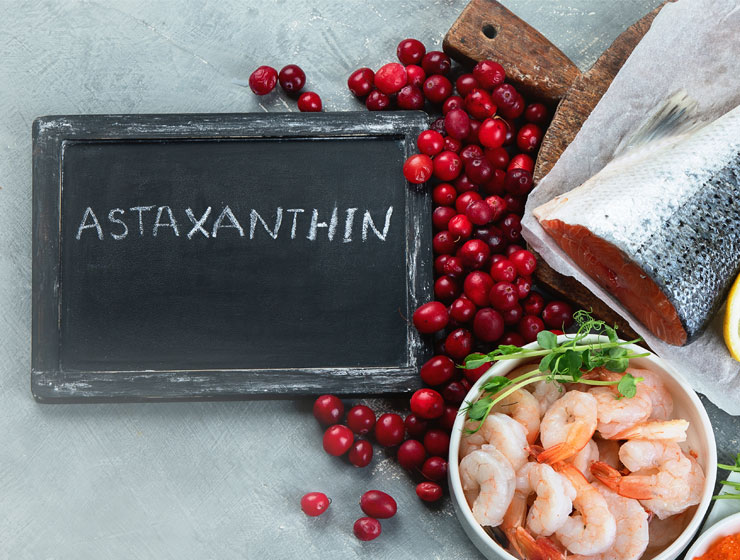
Astaxanthin - the "super antioxidant"?
Good for skin, joints and immune system
Astaxanthin is said to have a greater effect than other carotenoids, vitamin E and even vitamin C - what's behind this?
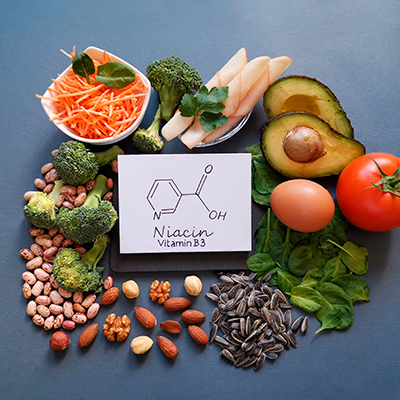
Niacin - a versatile B vitamin!
This is how vitamin B3 works in the body
As an essential vitamin, niacin plays an important role in the human body. But what exactly is this nutrient and how can it benefit our health?

D-Ribose - a natural power up
From the muscles to the heart: D-ribose is of great importance for our health and performance. As a component of all human cells, it is essential for the body's energy supply and regeneration. Health-conscious people and athletes therefore rely on this natural option to support their vitality and their cells. Find out more about D-ribose here now!
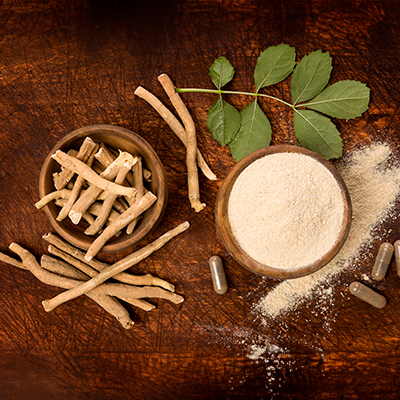
Ashwagandha - a real health all-rounder?
The powder from the sleeping berry is an integral part of Ayurvedic medicine and is valued for its many health-promoting properties. Read more now.
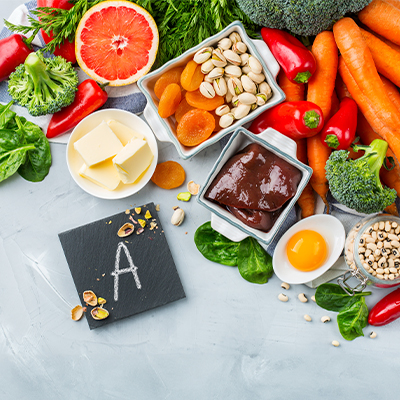
All you need to know about vitamin A
Vitamin A - also known as retinol - has become an important ingredient in anti-ageing skincare products. But it also has many other benefits.

Not in the mood for anything?
Listlessness, apathy, fatigue - seemingly harmless terms that can drastically reduce the quality of life of those who suffer from them. How these complaints differ and what diseases and causes may be behind them.

How creatine affects fitness
Creatine is primarily known for its effect on muscle building - but it plays a far more versatile role in the human body. We have summarised everything you need to know about this special substance for you in this article.

These conditions can cause hair loss
Hair loss, sudden hair loss, circular hair loss - when the hair on your head disappears, it can be a huge psychological burden for many people. What diseases can cause hair loss.
Your body, your digestive system: Everything you need to know about the anatomy and function of digestion!
Have you ever wondered exactly how your body converts the food you eat into energy and nutrients? The journey that your breakfast, for example, takes through your digestive tract is complex. From the initial mechanical grinding in the mouth to the final excretion of the indigestible remains – every step plays an important role in ensuring that your body gets the nutrients it needs.
Nutritionists and doctors agree: a thorough understanding of digestion is the key to a healthy and vital life. Ready to learn more? We can give you the information you need!
How is the digestive system structured?
The human digestive system includes several important organs:
- Mouth
- Oesophagus
- Stomach
- Small intestine (including duodenum)
- Large intestine (including colon and rectum)
- Liver
- Pancreas
- Gall bladder
Each of these organs has specialized tasks and functions that ensure the efficiency of the process and thus the absorption of nutrients [1].
How does digestion work in simple terms?
The digestive system is a comprehensive model that consists of several organs that work together to break down the food we eat into usable nutrients. The sequence is clearly structured and quickly explained [1]:
- 1. The process begins in the mouth, where mechanical crushing and enzymatic digestion by saliva begins.
- 2. The food pulp enters the stomach via the esophagus.
- 3. In the stomach, gastric acid and the enzyme pepsin continue the digestive process.
- 4. In the small intestine, the substances are further broken down and absorbed, aided by enzymes from the pancreas and bile from the gallbladder.
- 5. The large intestine (including the rectum) absorbs water and electrolytes before excreting indigestible residues as stool.
Why is digestion important?
The digestive process is essential to break down the nutrients absorbed from food into smaller molecules that the body can absorb and use. These substances are necessary for energy, growth, cell repair and general well-being. Without an efficient digestive process, the important substances could not be absorbed into the body.
Which organ is particularly important for digestion?
Each organ in the complex digestive tract plays a crucial role and has its own function, but the small intestine is central to efficient digestion and absorption of nutrients. The small intestine is the longest section of the digestive tract and plays a key role in breaking down food into absorbable components.
The pancreas produces a variety of enzymes that are released into the small intestine. These enzymes break down carbohydrates, proteins and fats into their smallest components so that they can then be absorbed through the small intestinal wall. In addition, the liver produces bile, which is stored in the gallbladder and then released to emulsify fats and facilitate their absorption in the small intestine [2].
How long does it take for food to be digested in the stomach?
The digestion process in the stomach can take between 2 and 4 hours, depending on the type and amount of food consumed. Fats and protein-rich foods take longer to digest than carbohydrates.
How long does digestion take until defecation?
The length of time it takes for food to be digested can vary depending on the type of food and individual factors. In general, it takes about 6 to 8 hours for food to pass through the stomach and small intestine. After that, it can take another 12 to 24 hours for the indigestible remains to be transported through the large intestine and excreted as stool.
Why do digestive problems occur?
We've all experienced the uncomfortable feeling – bloated tummy, sluggish digestion, constantly changing moods. Digestive problems can occur for so many reasons: poor eating habits, stress, too little fiber, insufficient fluid intake and certain medical conditions. But don't worry, there are simple ways to get your gastrointestinal tract going! Find out more about bowel health here.
How can you stimulate digestion?
The intestines digest continuously, but the efficiency of the digestive process can be affected by various factors such as diet, hydration and physical activity. Taking the following aspects into account can help you support your digestive system:
Nutrition and dietary fiber
Dietary fiber is the indigestible part of plants that stimulates peristalsis by increasing stool volume and accelerating intestinal transit. There are soluble fibers that dissolve in water and form a gel-like substance, and insoluble fibers that absorb water and increase the mass of the stool. Foods such as whole grains, fruits, vegetables, and legumes are rich in fiber and thus promote healthy digestion. They form propionic acid in our intestines – find out more here!
Fluid intake
Water is essential for the digestive process, as it softens stools and facilitates the movement of food through the intestines. Adequate fluid intake helps to prevent constipation, and supports the functioning of enzymes necessary for the breakdown of nutrients. It is recommended to drink at least 1.5 to 2 liters of water daily, depending on body weight and activity level.
Physical activity
Regular exercise promotes intestinal motility, which is the ability of the intestines to move food through wave-like muscle contractions. Activities such as walking, running, swimming and yoga can stimulate intestinal motility and help to prevent digestive disorders such as constipation. Exercise also reduces stress, which can negatively affect the digestive process.
Stress management
Stress can significantly impair the digestive process by increasing the release of stress hormones such as cortisol, which can slow down or speed up bowel function. Relaxation techniques such as meditation, deep breathing, progressive muscle relaxation and adequate sleep can help to reduce stress and thus support digestion.
Probiotics and prebiotics
Probiotics are live microorganisms that can positively influence intestinal flora. They are found in fermented foods such as yogurt, kefir, sauerkraut, and kimchi. Prebiotics, on the other hand, are indigestible food components that promote the growth and activity of beneficial bacteria in the gut. Both contribute to intestinal health by maintaining the balance of intestinal flora and improving the digestive process [2].
Chewing and eating habits
Thorough chewing is the first step in the digestion process and prepares food for enzymatic digestion in the stomach and intestines. Eating slowly and chewing thoroughly ensures that food is well-crushed, facilitating mechanical digestion and improving the absorption of nutrients [5]. In addition, eating mindfully can help avoid overeating and relieve the digestive system.
More helpful tips
Different life situations or illnesses require an adjustment of the diet to ensure the supply of nutrients and to alleviate any symptoms:
- More about optimal nutrition during pregnancy
- Help with nutrition tips for osteoarthritis
- Iron deficiency and iron deficiency anemia
Sources
[1] https://www.netdoktor.de/anatomie/verdauungssystem/
[2] https://www.studysmarter.de/schule/biologie/der-menschliche-koerper/verdauungstrakt/
[3] https://www.kenhub.com/de/library/anatomie/verdauungssystem
[4] https://viamedici.thieme.de/lernmodul/557179/529666/verdauungssystem
[5] https://www.spektrum.de/lexikon/biologie/verdauung/69251
